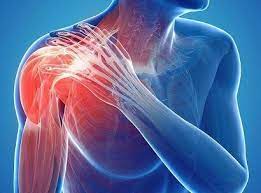Introduction
 shoulder pain is a common issue, and it’s one that can be troublesome. But even if you don’t have shoulder pain, there are still some things you can do to help manage it. Here are the top ten factors that cause shoulder pain, and how to address them.
shoulder pain is a common issue, and it’s one that can be troublesome. But even if you don’t have shoulder pain, there are still some things you can do to help manage it. Here are the top ten factors that cause shoulder pain, and how to address them.
What Causes Shoulder Pain. Shoulder Pain has some nice tips on this.
The Physical Causes of Shoulder Pain
– Shin splints
– Sprains and strains
– rotator cuff tears
– rotator cuff surgery
– full or partial tear of the supraspinal cord
– impingement syndrome
– tendinitis
– lateral epicondylitis
The Psychological Causes of Shoulder PainThe Psychological Causes of Shoulder Pain
-“It’s just a pain” syndrome
-“I don’t know what to do” syndrome
Subsection 1.3 The Medical Causes of Shoulderpain.
There are three main medical causes of shoulder pain:
-“The Trigger Point Syndrome” is caused by a lesion in the tendon where force is applied to the tendon, often from arthritis or other conditions. This is a common cause of shoulder pain and occurs most commonly in singers, athletes, and dancers. In these cases, the pressure on the tendon becomes unbearable and leads to inflammation and swelling. Symptoms may include stiffness, tenderness, tingling, burning, or Razors Edge Syndrome (a condition where sharp objects cut across your skin). Most patients recover within 24 hours but some require hospitalization. To treat this condition effectively, you will need to find out the source of the trigger point before treating it surgically. Trigger points are usually found and treated using ultrasound scanning or injection with an numbing agent into the area in order to reduce inflammation and swelling. Surgery is only recommended if there is significant inflammation or tenderness not relieved by other treatments.”
How to Subtract the Cause of Shoulder Pain from the Disease.
There are a number of factors that can contribute to shoulder pain. The most common causes of shoulder pain are: rotator cuff tear, arthritis, whiplash, or other sports-related injuries. However, even without any specific cause listed above, any type of pain in the shoulder can be interpreted as a potential injury. If you have shoulder pain that is causing you distress and is not relieved by rest or treatment, then it would be best to see a doctor.
Section Subtract the Cause of shoulder pain from the disease.
1. Inadequate range of motion
2. Overuse or arthritis
3. Lack of strength and movement
4. Concussion or injury
5. Anterior rotator cuff tear
6. Carpal tunnel syndrome
7. Westphal palsy
8. Tendonitis
9. Patella tendonitis
10. Herpes simplex virus
Section Subtract the cause from the disease.
1. Inadequate sleep: Most shoulder pain is caused by insufficient sleep, which can lead to a lack of energy and motivation
2. overuse: Some people use their shoulders too much, causing an increase in pain
3. misuse of physical activity: When you overdo it on your regular activities, you can cause inflammation and shoulder pain
4. Genetics: There are some factors that can contribute to the development of shoulder pain
5. poor posture: Poor posture can lead to incorrect angles in the shoulder blades, which can increase the risk for shoulder pain
6. lack of range of motion: When your shoulder isn’t properly aligned, it creates tension on adjacent muscles and joint area
7. incorrect movement patterns: If you frequently move your arms or hands in different directions, this can cause discomfort and rotator cuff tears
8. age-related arthritis: The disease often results from old age and can be more severe in older individuals
9. stress: It’s common to experience pressure or tension in the region where the shoulders sit when we’re stressed out
10. prior shoulder surgery: Surgery can cause pain in the shoulder area
Conclusion
The physical and psychological causes of shoulder pain can be divided into four categories: the physical causes, the psychological causes, the medical causes, and the homeostatic causes. The first step in treating the cause of shoulder pain is to identify it. Next, subtract the cause from the disease. Finally, treat the cause of shoulder pain by subtracting the cause from the disease.
